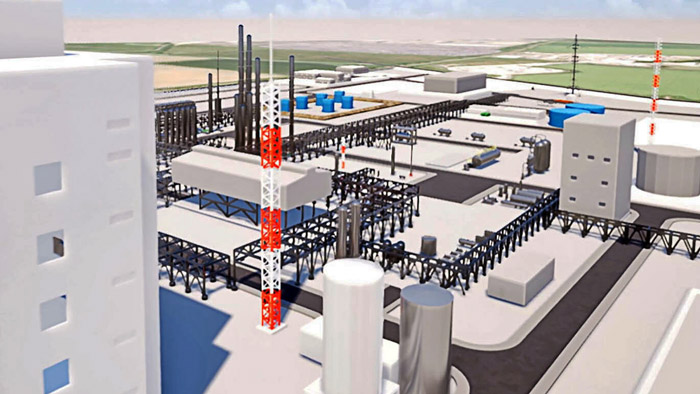
UK’s first commercial waste-to-jet-fuel plant gets NELC planning committee approval
Velocys plc (VLS.L), the sustainable fuels technology company, announced that resolution to grant planning permission has been given to Altalto Immingham, the UK’s first commercial waste-to-jet-fuel plant, by North East Lincolnshire Council (NELC)’s Planning Committee. A formal decision notice will then be issued subject to the completion of standard legal agreements with NELC. All statutory consultees have indicated their acceptance of the plan.
The proposed Altalto Immingham plant is to convert hundreds of thousands of tonnes per year of non-recyclable everyday household and commercial waste, otherwise destined for landfill or incineration, into cleaner burning sustainable aviation fuel (SAF). The project is a collaboration between Velocys, British Airways PLC and Shell International Petroleum Company Limited. It is expected to create 130 permanent skilled jobs and many more during construction.
The fuel, based on technology supplied by Velocys, offers net greenhouse gas savings of around 70% for each tonne of conventional jet fuel it displaces. It would also improve air quality, with up to 90% reduction in particulate matter (soot) from aircraft engine exhausts and almost 100% reduction in sulphur oxides.
Subject to additional funding and financial close, construction is targeted to begin in 2022, and the facility could be producing fuel from 2025.
“It’s fantastic news that the Planning Committee has approved our waste-to-jet-fuel project, which will be a first for the UK. Sustainable aviation fuels are essential for decarbonising this challenging sector and achieving net zero emissions by 2050. That’s why Velocys are calling on the government to co-ordinate policy between departments to help us fund a fleet of world leading sustainable aviation fuel facilities in the UK,” Henrik Wareborn, CEO at Velocys.
“It’s great to see the industry leading the way in creating new technologies to help achieve our target of net zero emissions by 2050, while also bringing new jobs to the local area,” said Aviation Minister Kelly Tolhurst. “Innovative technologies – like the development of sustainable aviation fuels – firms up the UK’s position as a leader in aviation, and shows the determination the industry has in continuing to operate, but in a more environmentally-friendly way.”
“This development cements North East Lincolnshire’s place at the heart of the UK’s green industrial revolution, an area already renowned for its fuels production and offshore wind industry,” said Cllr Philip Jackson, leader, North East Lincolnshire Council.














